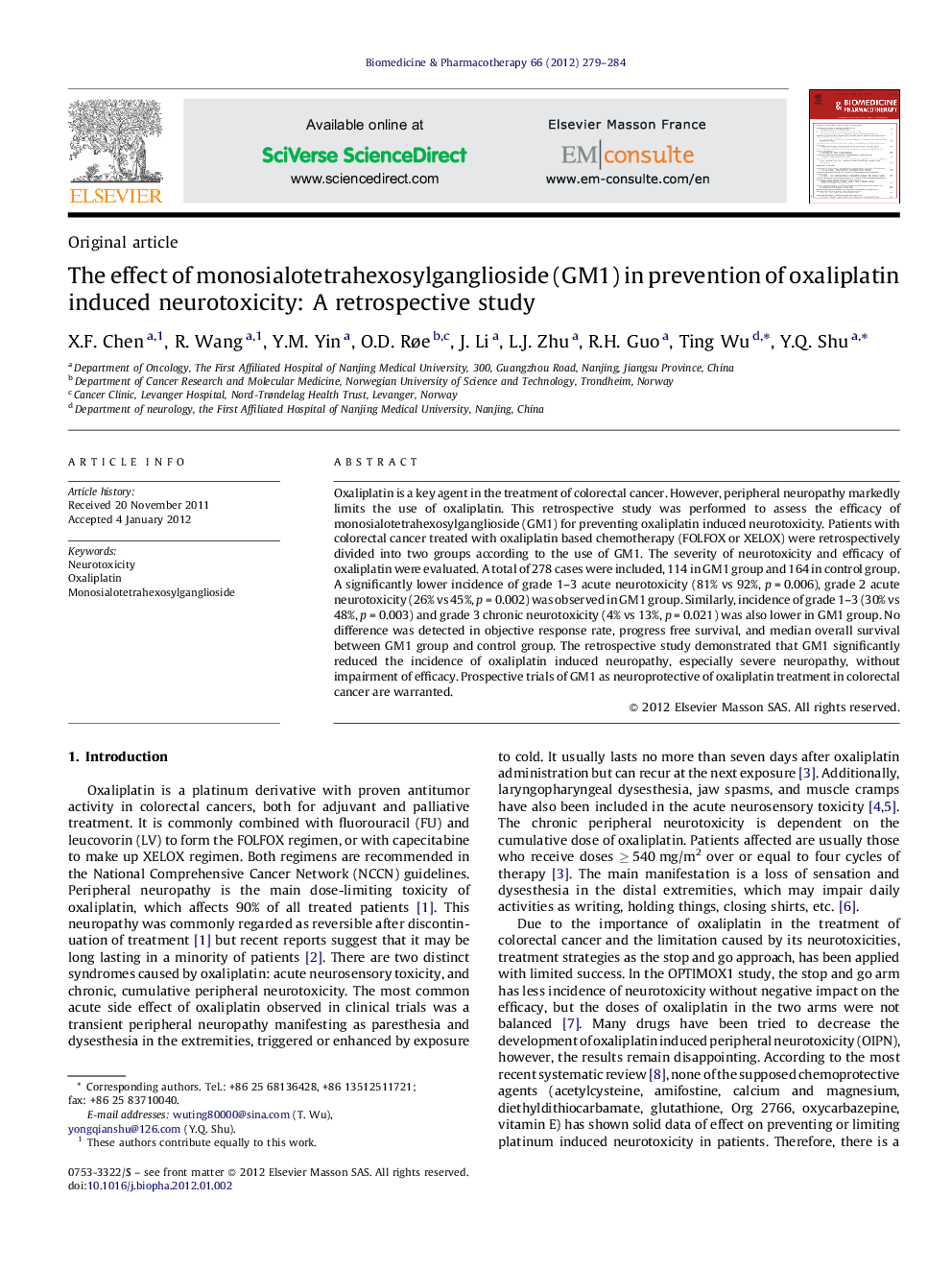| Article ID | Journal | Published Year | Pages | File Type |
|---|---|---|---|---|
| 2524753 | Biomedicine & Pharmacotherapy | 2012 | 6 Pages |
Oxaliplatin is a key agent in the treatment of colorectal cancer. However, peripheral neuropathy markedly limits the use of oxaliplatin. This retrospective study was performed to assess the efficacy of monosialotetrahexosylganglioside (GM1) for preventing oxaliplatin induced neurotoxicity. Patients with colorectal cancer treated with oxaliplatin based chemotherapy (FOLFOX or XELOX) were retrospectively divided into two groups according to the use of GM1. The severity of neurotoxicity and efficacy of oxaliplatin were evaluated. A total of 278 cases were included, 114 in GM1 group and 164 in control group. A significantly lower incidence of grade 1–3 acute neurotoxicity (81% vs 92%, p = 0.006), grade 2 acute neurotoxicity (26% vs 45%, p = 0.002) was observed in GM1 group. Similarly, incidence of grade 1–3 (30% vs 48%, p = 0.003) and grade 3 chronic neurotoxicity (4% vs 13%, p = 0.021) was also lower in GM1 group. No difference was detected in objective response rate, progress free survival, and median overall survival between GM1 group and control group. The retrospective study demonstrated that GM1 significantly reduced the incidence of oxaliplatin induced neuropathy, especially severe neuropathy, without impairment of efficacy. Prospective trials of GM1 as neuroprotective of oxaliplatin treatment in colorectal cancer are warranted.
